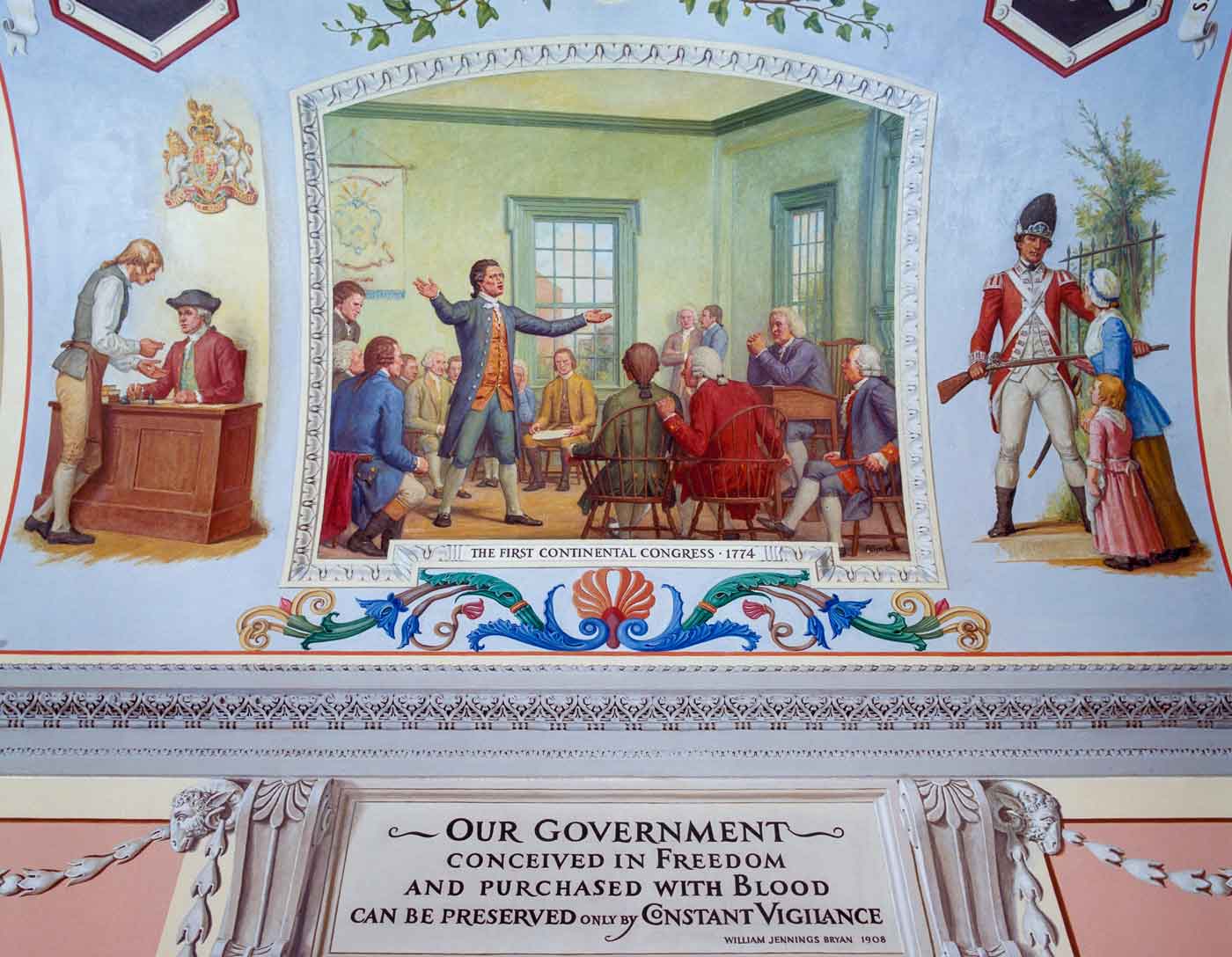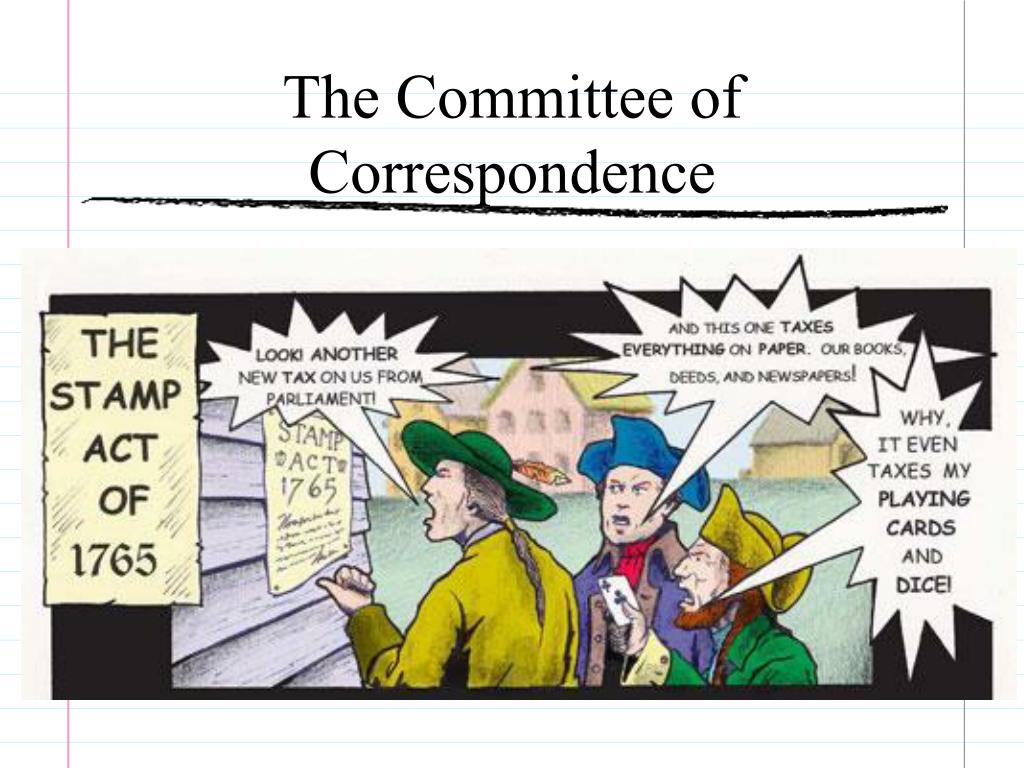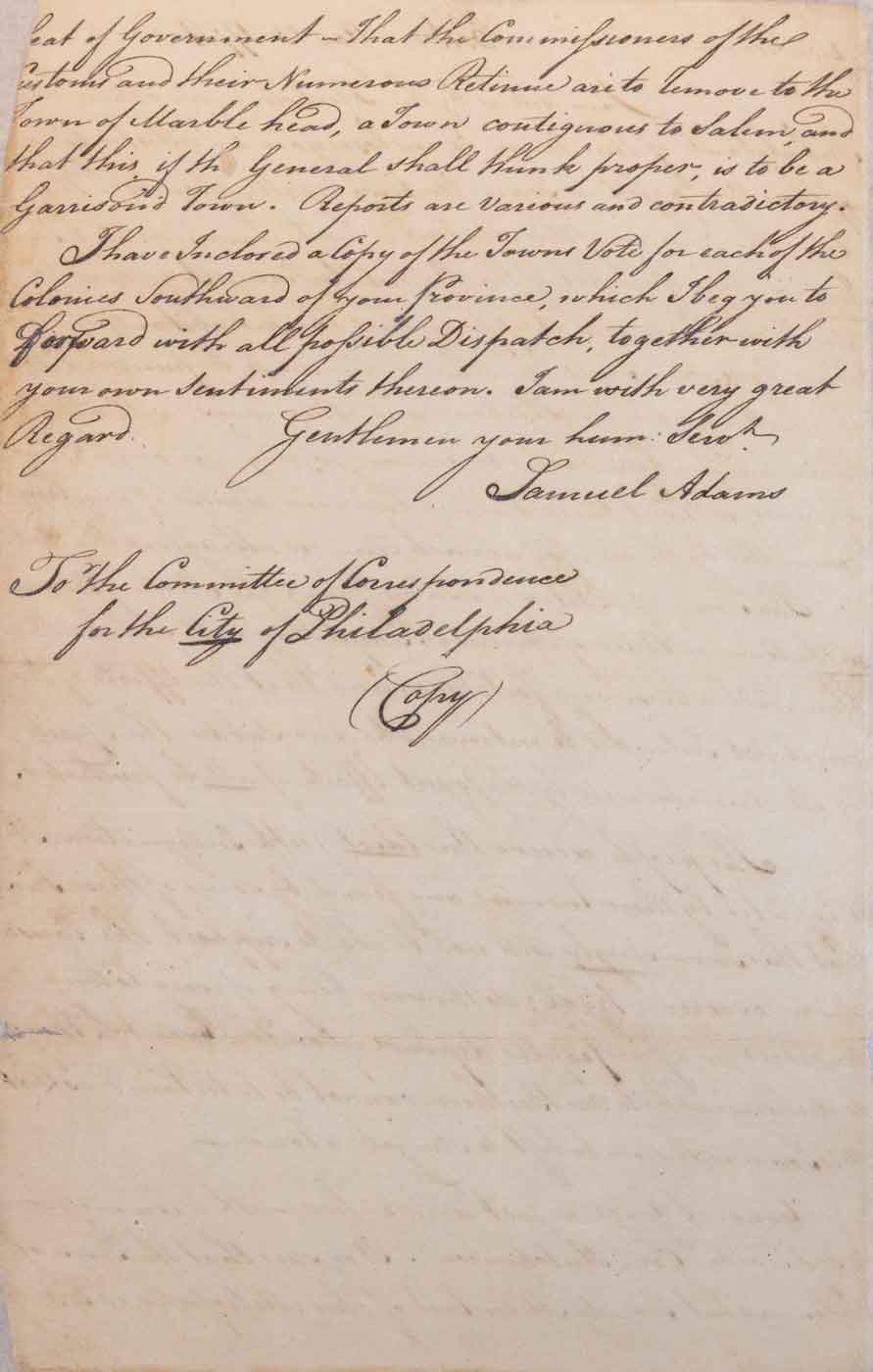Committees Of Correspondence Drawing
Committees Of Correspondence Drawing - Web 1772 nov 1. From the nature of a social compact, necessarily. And throughout the year, they followed massachusetts’s example by seizing the powers of the royal governments. The colonies elected delegates to the first continental congress in various ways. The function of the committees was to alert the residents of a given colony of the actions taken by the british crown, and to disseminate information from cities to the countryside. Robert morris, revolutionary financier, soon joined them. The following timeline highlights important events and activities in the history of what would become the revolutionary committees of correspondence system. The virginia house of burgesses followed adams' lead and established a committee of correspondence as a standing committee in 1773. In 1767, a new wave of taxes on the american colonists led to renewed protest, and the formation of committees of correspondence to rally opposition to british policies. Committees of correspondence, groups appointed by the legislatures in the 13 british american colonies to provide colonial leadership and aid intercolonial cooperation. Web virginia’s committee of correspondence is largely credited with originating the invitation. Web the committees of correspondence originated as temporary organizations formed in response to crises like the stamp act in 1765. The following timeline highlights important events and activities in the history of what would become the revolutionary committees of correspondence system. The virginia house of burgesses followed adams'. On the committee were benjamin franklin, benjamin harrison, thomas johnson, john dickinson, and john jay. Web drawing on his extensive european contacts, he began a campaign to rally international support of the american cause. Web congress initially established the committee of correspondence on november 29, 1775, to communicate with colonial agents in britain and “friends in. These committees of correspondence. 1) gather and share information and 2) coordinate responses to british policies. Their emergence as agencies of colonial discontent was prompted by samuel adams, who, at a boston town meeting on november 2, 1772, secured the. From the nature of a social compact, necessarily. Web on october 21, 1773, the massachusetts committee of correspondence sent a letter signed by samuel. On the committee were benjamin franklin, benjamin harrison, thomas johnson, john dickinson, and john jay. Web by early 1774, committees of correspondence and/or extralegal assemblies were established in all of the colonies except georgia. From the nature of a social compact, necessarily. Web oil portrait of samuel adams, ca. These committees of correspondence would disseminate information and promote unity through. The british were sending shipments of the tea to the port cities of boston, new york, philadelphia, and charleston. The committee of correspondence also worked on american soil. The following timeline highlights important events and activities in the history of what would become the revolutionary committees of correspondence system. Web the most famous and influential committees of correspondence, however, operated. An illustration of a heart shape donate to the archive an illustration of a magnifying glass. From the nature of a social compact, necessarily. Web on october 21, 1773, the massachusetts committee of correspondence sent a letter signed by samuel adams and thomas cushing to the other colonies urging them to “be united” in rejecting the tea from the british. They helped coordinate colonial protests and petitions, but disbanded after these immediate issues were resolved, whether through repeal of the taxes or simple resignation. Web virginia’s committee of correspondence is largely credited with originating the invitation. The virginia house of burgesses followed adams' lead and established a committee of correspondence as a standing committee in 1773. Their emergence as agencies. From the nature of a social compact, necessarily. Committees of correspondence, groups appointed by the legislatures in the 13 british american colonies to provide colonial leadership and aid intercolonial cooperation. Web when fomenting and solidifying support for opposition against british imperial policies, american colonists established committees of correspondence. Other parts of the world.”. These committees of correspondence would disseminate information. In any case, the members of these organizations represented. Web the two main purposes of the committees of correspondence were: From the nature of a social compact, necessarily. Web the committees of correspondence originated as temporary organizations formed in response to crises like the stamp act in 1765. Web study with quizlet and memorize flashcards containing terms like leaders such. Web virginia’s committee of correspondence is largely credited with originating the invitation. Web the committees of correspondence were a collection of american political organizations that sought to coordinate opposition to british parliament and, later, support for american independence during the american revolution. The following timeline highlights important events and activities in the history of what would become the revolutionary committees. Web when fomenting and solidifying support for opposition against british imperial policies, american colonists established committees of correspondence. Their emergence as agencies of colonial discontent was prompted by samuel adams, who, at a boston town meeting on november 2, 1772, secured the. Web the committees of correspondence, a series of governmental groups, was the american colonies’ system for maintaining communication lines in the years before the revolutionary war. 1772, by john singleton copley (photograph museum of fine arts, boston) adams was a cofounder of the boston committee of correspondence and a primary author of the “boston pamphlet.”. In any case, the members of these organizations represented. The british were sending shipments of the tea to the port cities of boston, new york, philadelphia, and charleston. And throughout the year, they followed massachusetts’s example by seizing the powers of the royal governments. They helped coordinate colonial protests and petitions, but disbanded after these immediate issues were resolved, whether through repeal of the taxes or simple resignation. On december 12, 1775, franklin wrote to don gabriel de bourbon, a prince of the spanish royal family and one of franklin's scholarly associates. From the nature of a social compact, necessarily. Web the most famous and influential committees of correspondence, however, operated in the 1770s. The townshend acts, passed in 1767 and 1768, were designed to raise revenue for the british empire by taxing its north american colonies. In this decade there were three consecutive systems of committees of correspondence: Web the two main purposes of the committees of correspondence were: Other parts of the world.”. In 1767, a new wave of taxes on the american colonists led to renewed protest, and the formation of committees of correspondence to rally opposition to british policies.
Video of American Revolution Committees of Correspondence Britannica
:max_bytes(150000):strip_icc()/GettyImages-125128576-566447b9f9624f51afe7415cf60fc1e4.jpg)
Committees of Correspondence Definition and History

Path To The Revolution Committees of Correspondence

Committees of Correspondence YouTube

Committees of Correspondence Timeline Colonial Williamsburg Foundation

PPT United States History PowerPoint Presentation, free download ID

Committees of Correspondence Timeline Colonial Williamsburg Foundation

Committees of Correspondence American Revolution 1773
:max_bytes(150000):strip_icc()/GettyImages-51086250-e5a19faded67466fb5bebf984a087a44.jpg)
Committees of Correspondence Definition and History

Committees of Correspondence
An Illustration Of A Heart Shape Donate To The Archive An Illustration Of A Magnifying Glass.
Web By Early 1774, Committees Of Correspondence And/Or Extralegal Assemblies Were Established In All Of The Colonies Except Georgia.
Web The Committees Of Correspondence, Together With Other Local Committees Formed In The Colonies For Purposes Such As Enforcing Embargoes On British Goods, Became A Kind Of Shadow Government With Claims To Legitimately Represent Their Communities.
Web Committees Of Correspondence Have A Long History In North America.
Related Post: